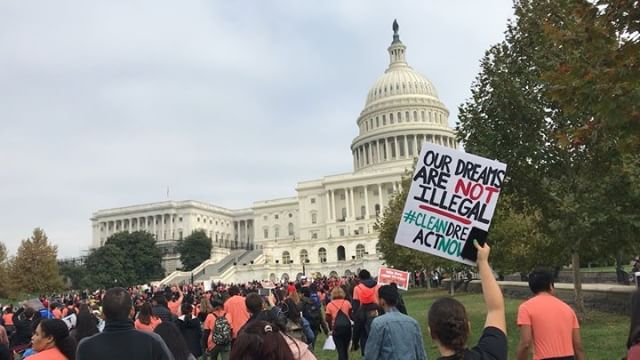
As politicians in Washington try and figure out what to do with the DACA program — Deferred Action for Childhood Arrivals — across the country, DACA recipients are working on their own plans … trying to stay in the country if Congress doesn’t act in time.
Andrea De La Vega, 26, editor of the school newspaper, lead attorney on the mock trial team, and top 10 percent of her class, found out that she didn’t have a Social Security number, so she couldn’t apply for student loans or scholarships as she was preparing to apply to colleges.
Andrea and Claudia De La Vega came to the United State with their parents legally. Their father, an architect, got a job in Texas, allowing him to get a work visa that covered the entire family. Once here, Andrea and Claudia’s parents started the process to get permanent residency — a process that took more than 20 years. By the time they became citizens, three of the four De La Vega kids had aged out of their parents’ protection and were left with no legal status.
“I had no source of income,” Claudia says. She says she found ways to make ends meet, “Like selling stuff, going to the thrift store and reselling it on eBay. DACA allowed Claudia to work as an architect and Andrea as an office manager for a psychiatrist, but the De La Vega sisters have had to figure out other plans now that DACA has been rescinded.
Andrea is eligible to renew her work permit for two more years — so that’s her immediate plan, but after that, it’s unknown. Claudia and her fiancé, Marc Jorge, who is a U.S. citizen, decided to move up their wedding so Claudia could apply for a more permanent status. “I feel so guilty about it,” Claudia says in talking about her other siblings who still face deportation with no clear solution. “If I were in their shoes, I wouldn’t know what to do.”

Recent Comments